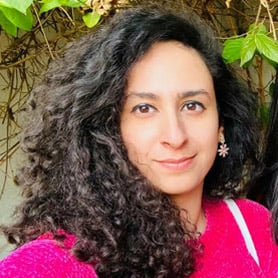Watts to Waste: Exploring India’s Solar Waste Landscape
Over the past decade, India has seen remarkable growth in its solar market, aiming for 500 GW non-fossil fuel-based energy generation by 2030. To achieve this, an annual addition of 40 GW solar energy, predominantly crystalline-silicon PV panels (~95%), is required. Despite policies like the Jawaharlal Nehru National Solar Mission and the Production-Lined Incentive scheme propelling growth, the flourishing solar industry raises a critical concern: solar waste management. This report examines the challenges, emphasizing collaborative solutions for a circular economy and sets the stage for future assessments of recycling challenges in evolving PV manufacturing and infrastructure.

Rapid adoption of solar PV technologies in India, while ensuring sustainable energy access, carries an impending issue of end-of-life (EoL) management of waste solar PV modules. Most solar PV modules have a warranty of about 20–25 years although premature decommissioning is not uncommon. These panels create component waste, batteries, and end-of-life PV modules. However, while other waste streams from the solar sector are regulated under specific e-waste legislations in India, solar PV modules have only recently been identified as a waste of concern and covered under the newly implemented E-Waste Management Rules, 2022. Their end-of-life fate has so far depended on the proactiveness of companies and is strongly connected with availability of collection and recycling infrastructures. In many instances, waste PV modules (predominately from premature decommissioning) end up in the vast informal sector where it is crudely dismantled and processed for valuable factions.
Effective action in the sustainable management of solar PV waste can only be facilitated by strong policies and effective interventions in the sector. Solar waste recycling technologies have still not been optimized for cost-effective recovery of high-purity materials, even in advanced markets like the European Union (EU) and Washington DC, with mandatory PV recycling policies. While the EU may be the pioneers in adopting PV recycling in their policy, India is continuously developing policy initiatives for solar PV waste management.
This report aims to provide a comprehensive view of solar PV waste management in India – nascent as it is – by contextualizing it in the current RE boom in the country and projections of waste volumes than can be anticipated in by 2040 (with mid-term projections for 2025 & 2030). We have drawn on experiences and insights shared by experts and stakeholders in the sector and rooted the recommendations in the current policy scenario. Learnings from related sectors and concepts, such as e-waste management and circular economy have been incorporated into the document alongside the deep dive into the solar PV waste sector. This report also outlines strategic recommendations towards developing a solar PV waste strategy for India and describes the key steps that ISA can take as a key enabler of the same.
Report Authors


Shramana is a Sustainability consultant with close to 10 years of experience in working on impact-driven projects. Her experience lies in inclusive development, ESG, and circular economy. She is also an experienced trainer, having delivered trainings across the world on various topics of sustainability. Her areas of interest include waste and pollution management, renewable energy, social inclusion, sustainable supply chain and energy transition.

Kishore Ganesan is a sustainable energy consultant, specialized in Solar PV waste management and Life Cycle Analysis. Kishore successfully worked on projects which included analysing the economic and technical feasibility of PV waste management solutions in India and Vietnam. He has led and conducted 20+ product life cycle assessments in the food and beverage sector and textile sector. He has delivered a wide range of projects, including short-term assignments and large-scale multi-year efforts. Kishore, with a mechanical engineering background, has previous industrial experience in solar control glass production.

Sunanda Mehta is a Senior Consultant with dss+ India. She has over 7 years of work experience in sustainability projects including projects on waste management, ESG and GRI reporting, materiality assessment and many more. She holds a Master's degree in Environmental Science and an undergraduate degree in Engineering.
Shramana is a Sustainability consultant with close to 10 years of experience in working on impact-driven projects. Her experience lies in inclusive development, ESG, and circular economy. She is also an experienced trainer, having delivered trainings across the world on various topics of sustainability. Her areas of interest include waste and pollution management, renewable energy, social inclusion, sustainable supply chain and energy transition.
Kishore Ganesan is a sustainable energy consultant, specialized in Solar PV waste management and Life Cycle Analysis. Kishore successfully worked on projects which included analysing the economic and technical feasibility of PV waste management solutions in India and Vietnam. He has led and conducted 20+ product life cycle assessments in the food and beverage sector and textile sector. He has delivered a wide range of projects, including short-term assignments and large-scale multi-year efforts. Kishore, with a mechanical engineering background, has previous industrial experience in solar control glass production.
Sunanda Mehta is a Senior Consultant with dss+ India. She has over 7 years of work experience in sustainability projects including projects on waste management, ESG and GRI reporting, materiality assessment and many more. She holds a Master's degree in Environmental Science and an undergraduate degree in Engineering.


Shramana is a Sustainability consultant with close to 10 years of experience in working on impact-driven projects. Her experience lies in inclusive development, ESG, and circular economy. She is also an experienced trainer, having delivered trainings across the world on various topics of sustainability. Her areas of interest include waste and pollution management, renewable energy, social inclusion, sustainable supply chain and energy transition.

Kishore Ganesan is a sustainable energy consultant, specialized in Solar PV waste management and Life Cycle Analysis. Kishore successfully worked on projects which included analysing the economic and technical feasibility of PV waste management solutions in India and Vietnam. He has led and conducted 20+ product life cycle assessments in the food and beverage sector and textile sector. He has delivered a wide range of projects, including short-term assignments and large-scale multi-year efforts. Kishore, with a mechanical engineering background, has previous industrial experience in solar control glass production.

Sunanda Mehta is a Senior Consultant with dss+ India. She has over 7 years of work experience in sustainability projects including projects on waste management, ESG and GRI reporting, materiality assessment and many more. She holds a Master's degree in Environmental Science and an undergraduate degree in Engineering.